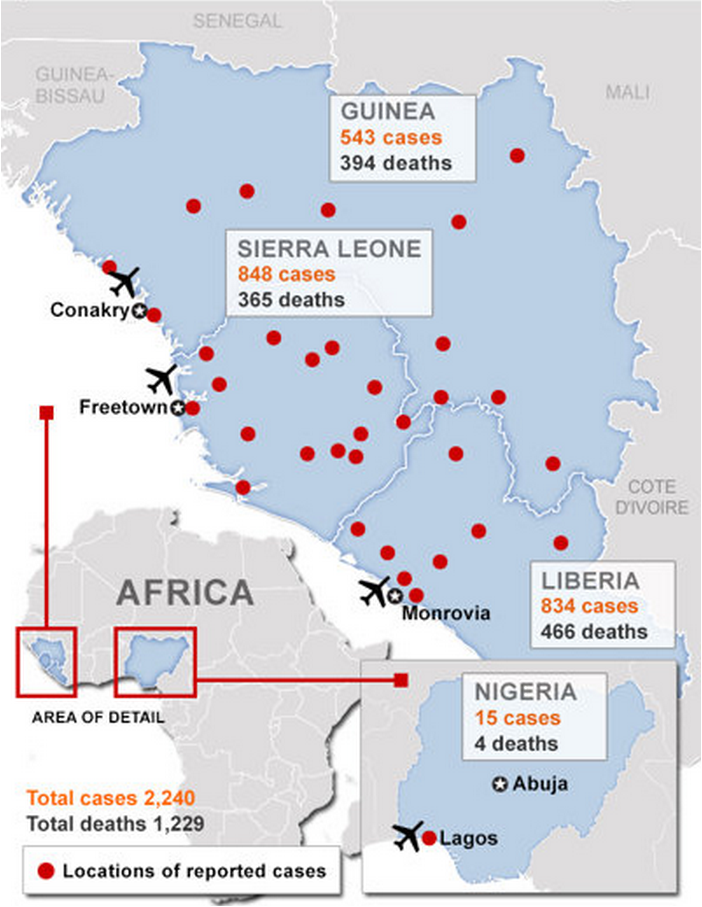Aug
28
2014
The headline of an article on the Organic Consumers Association proclaims, “New Study Links GMO Food To Leukemia.” The same article trumpets the thoroughly discredited Seralini study. The claim is not true, but is part of a pattern of behavior that is depressingly familiar.
The pattern is not unique to anti-GMO activism. In fact, it seems to be the default human behavior. We tend to search for information that supports our currently held views. The more passionate we are about those views, the more industrious we are in finding apparent support, even if it means twisting and distorting information.
I find myself doing this all the time – if a study or new piece of information directly opposes something I currently believe, then my mind immediately starts finding reasons to dismiss the information. I have the opposite reaction when the information confirms my current beliefs, I find reasons to accept it.
But then I consciously step back and try to take an objective look at the information. This is not always easy, and may involve specialized knowledge I don’t have. I then have to look to experts to see if there is a clear consensus opinion. In other words, I don’t just stick with my knee-jerk reaction to information. I go through a process of evaluation and critical analysis. My goal is to come to a valid conclusion, one that will hold up under critical assault, whatever that conclusion is. Meanwhile I have to remain open to the possibility that my conclusion is wrong or incomplete, that I missed something or made an error in my process.
Continue Reading »
Aug
26
2014
I was recently interviewed for an article on Medical News Today by David McNamee regarding Why is scientific literacy among the general population important? The topic, of course, is very important to me, as I have spent a great deal of my time attempting to promote scientific literacy generally, with an emphasis on medical science since that is my specialty.
Carl Sagan articulated the basic issue well (of course) – to paraphrase, we live in a civilization increasingly dominated by science and technology, and with a populace less and less able to understand current science and technology. This is a recipe for disaster.
There are many examples that should be readily accessible to regular readers of this or other science blogs: are vaccines safe and effective, how much of our resources should we invest in reducing carbon emissions, are GMOs safe and are they a benefit or risk to the environment, should we put fluoride in public water supplies, how should alternative medical treatments be regulated and how should we invest further in clinical trials of their efficacy?
Continue Reading »
Aug
25
2014
Nassim Taleb is a serious scholar of risk assessment, especially in the world of economics. So when he and two co-authors published a paper on the precautionary principle as it applies to genetically modified organisms it is worth taking seriously. That does not mean I have to agree with his conclusions, however.
What I found was that Taleb’s argument is mathematically rigorous, although I think too absolute, but also is biologically naive.
Here is his argument in a nutshell: The mathematical part if this – if we consider risk prevention, we must decide how much risk is acceptable. As risk increases, tolerance should decrease. As risk approaches infinity, tolerance should approach zero.
Continue Reading »
Aug
22
2014
 A common defense of implausible treatments is the question – “what’s the harm.” In other words, implausible therapies might help and can’t hurt, so there is no harm in trying. Is this a valid argument, however?
A common defense of implausible treatments is the question – “what’s the harm.” In other words, implausible therapies might help and can’t hurt, so there is no harm in trying. Is this a valid argument, however?
In trying to assess which side of a controversy has the better position I look toward logic and evidence. Evidence is critical, of course, but in fields outside my expertise I have to rely upon experts to interpret that evidence and put it into a broad and deep scientific context. In controversies, often the data itself is not the core issue, but which data to trust and how to interpret that data.
Therefore, when evaluating various controversial positions, it is very helpful to determine which side has the better arguments. If there is a dramatic asymmetry with one side relying heavily on logical fallacies, that is often very telling. Further, on any particular point you can follow the exchange through to completion and see which side ultimately has the better position.
For example, creationists argue that evolution violates the second law of thermodynamics which states that in any system entropy should increase. Scientists counter that the second law only applies to closed systems and the Earth is an open system, receiving energy from the sun. Creationists then counter that the universe is a closed system and so entropy should be increasing in the universe. Scientist counter further that entropy is increasing in the universe but this does not preclude local decreases in entropy where energy is available, such as the biosphere of the Earth. Creationists then respond by changing the subject. In other words – they have no response. They are wrong and have lost the argument.
Continue Reading »
Aug
21
2014
David Gorski and I have just published a paper in Trends in Molecular Medicine titled: Clinical trials of integrative medicine: testing whether magic works?
While we have published literally thousands of online articles discussing these issues here, at Science-Based Medicine, and other venues, it’s great to get an article in the peer-reviewed literature, which hopefully will spark more of a discussion in academic circles.
The full article is available online at the link above, but here’s a quick summary of the main points:
The question is – should we devote limited research resources to investigating CAM (complementary and alternative medicine) methods? Those resources include not only money, but researcher time, available patients, and space for reporting and discussion at conferences and in the published literature. CAM is actually a false category, in my opinion, used really as a marketing strategy and not a meaningful designation. It makes it difficult to answer this question, because we first have to operationally define CAM. (As an aside, “integrative” medicine is essentially the same as CAM, just a different marketing term.)
The real question is – how far down the scale of plausibility should we go in allocating research resources? Should it matter?
Continue Reading »
Aug
19
2014
If you like crime dramas, you have probably seen this countless times. The officer interrogating a suspect chums up to them, says they understand, and then offers them a face-saving version of guilt to which they can confess. It’s compelling drama.
What is being depicted is known as the Reid Technique, developed by John Reid in the 1950s. This technique remains popular, but is also highly controversial.
A recent study, however, claims 100% accuracy using the Reid technique to detect deception in 33 interviews. That is very impressive, but raises some red flags. The study also claims 97.8% accuracy is a second trial of experts interrogating suspects, and 93.6% accuracy when students viewed tapes of the interrogations in order to determine guilt.
The primary reason I don’t find the results compelling is that the psychological study may not be a good analog of real-life situations. The suspects were students who were participating in a fake psychological study and were cajoled into cheating by a confederate in order to obtain a monetary reward that was part of the fake study. The interviews were also fairly brief, 3-17 minutes.
Continue Reading »
Aug
18
2014
 There are multiple threads to this story, all revolving around how we make sense of the data before us. Regular readers will likely not be surprised to hear that we tend to labor under a host of cognitive biases that lead us from an accurate interpretation.
There are multiple threads to this story, all revolving around how we make sense of the data before us. Regular readers will likely not be surprised to hear that we tend to labor under a host of cognitive biases that lead us from an accurate interpretation.
This story starts with big data – a loose term referring to the access to massive amounts of data made possible by the internet, search engines, and social media. Google, for example, can track search terms in real time and look for trends. Tracking search terms related to the flu, for example turns out to be an accurate predictor of flu outbreaks.
Recently, Harvard University PhD student Laura Trucco searched through Google Trends and found that searches for “iPhone slow” tend to peak just before Apple is set to release a new model of iPhone. This led to speculation that perhaps Apple is deliberately gimping older models of the iPhone in order to motivate users into upgrading.
Continue Reading »
Aug
15
2014
Brad Crouch should be fired. At the very least he should never write a science news article again (well, maybe after remedial education and appropriate penance). At first I thought perhaps he was a general or fluff journalist taken off the dog show beat and asked to cover a science news item, but his byline for The Advertiser (an Australian news outlet) says he is a “medical reporter.” That’s frightening.
I read a lot of bad science news reporting, but rarely does a reporter so thoroughly misrepresent the actual science news – unless there is an obvious ideological agenda, but as far as I can tell this is just pure incompetence.
He is reporting on a review article on epigenetics recently published in Science. The two articles have very little in common, and it’s difficult to see how Crouch arrived at his story other than just making shit up. He begins:
LANDMARK Adelaide research showing that sperm and eggs appear to carry genetic memories of events well before conception, may force a rethink of the evolutionary theories of Charles Darwin, scientists say.
First, the paper is not research, let alone “landmark” research. It is a review article. It’s not even a systematic review or a meta-analysis, which a reporter might be forgiven for calling a “study” – it’s just a discussion of the topic of epigenetics.
Continue Reading »
Aug
14
2014
 In 2000 Michael J. Fox began a non-profit organization to support research into Parkinson’s Disease (PD). This was shortly after he was diagnosed with the disease. Since then Fox has been the model celebrity spokesperson and advocate. (He doesn’t kibitz, he just raises awareness and supports the science.)
In 2000 Michael J. Fox began a non-profit organization to support research into Parkinson’s Disease (PD). This was shortly after he was diagnosed with the disease. Since then Fox has been the model celebrity spokesperson and advocate. (He doesn’t kibitz, he just raises awareness and supports the science.)
Now his foundation, together with Intel, have developed a wearable device and accompanying app that can monitor the symptoms of PD in real time 24 hours a day. This is an interesting application of technology, and something that we are beginning to see more, and will likely increase in future.
PD is a neurodegenerative disease affecting a part of the brain called the substantia nigra. Neurons in that structure produce and release dopamine. These neurons are part of a circuit (the extrapyramidal system) that essentially monitors and adjusts the sensitivity or gain of the motor system. It’s a sensitive feedback loop that keeps our movement smooth. If the gain is turned up too high then we would constantly be moving and writhing. If it’s turned down too low, then we start to freeze. People with PD have the gain turned down too low.
Continue Reading »
Aug
12
2014
Part of the scientific approach to knowledge is to integrate information at various levels. It’s important to get the tiny facts correct, but you also have to put those facts into progressively broader and deeper frameworks. Theories are informed by facts which in turn make sense only in the context of the theory.
I try to take this approach with topics on this blog, by not only spending time addressing specific facts but also trying to see the big picture. For example, Mary Tocco, who is an anti-vaccine activist, was recently given space for a guest column on Michigan Live. I will go through and deconstruct her specific claims, but it’s also helpful to view her article in the broader social context.
Tocco is part of Michigan Opposing Mandatory Vaccination, or MOM (how can you not love “mom”). In her article she writes:
“The authors labeled Michigan Opposing Mandatory Vaccines an anti-vaccine group. Our organization is about protecting parental right to choose whether or not to use vaccines as a method of health care for themselves and their children.”
From this one paragraph we can see many of the threads currently weaving through culture. The big picture is that there is an ideological struggle going on between those who take a science-based worldview and believe that rational regulations should be based on the best science available, and those who wish to promote some other agenda that is not science-based.
Continue Reading »









